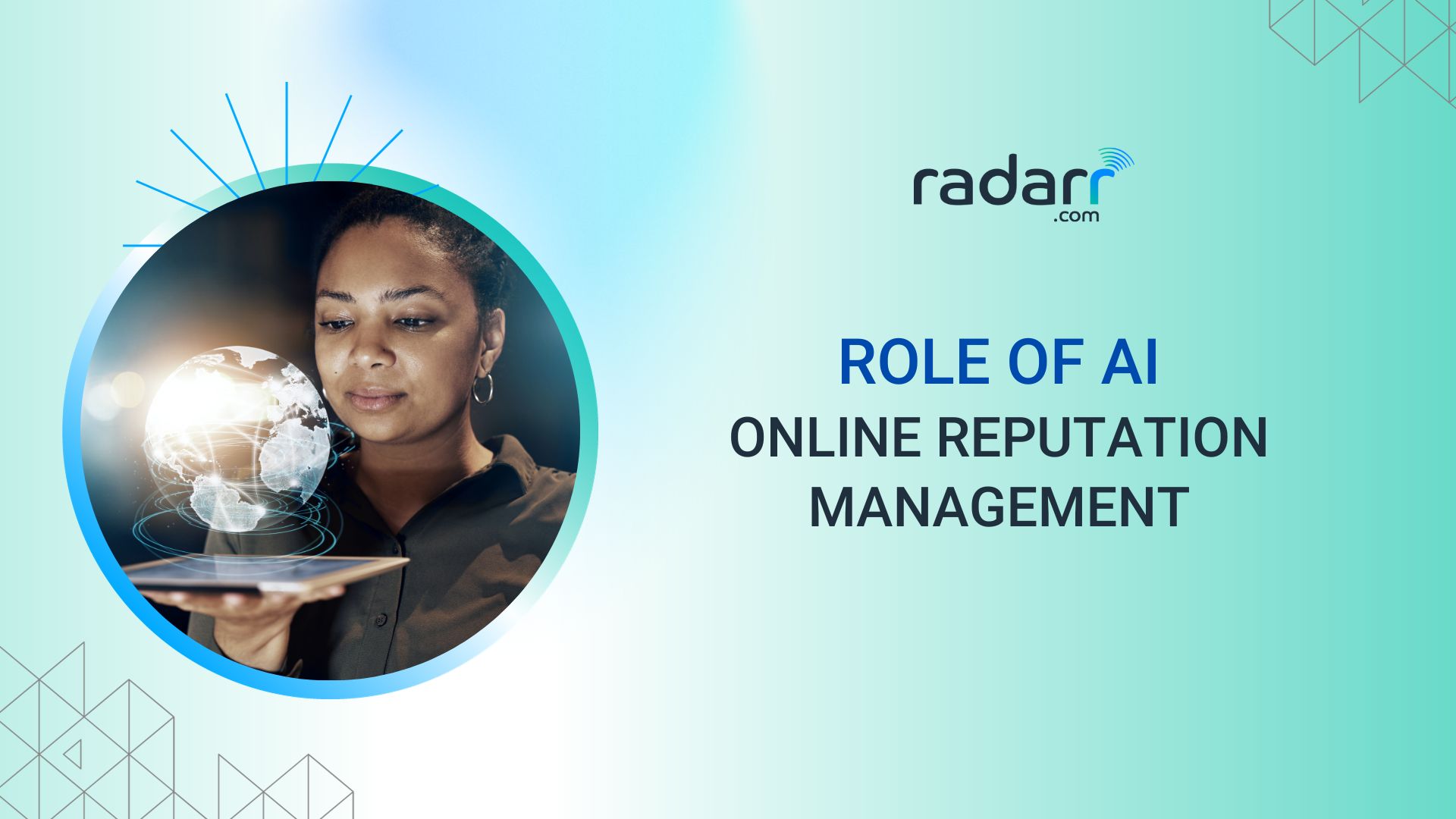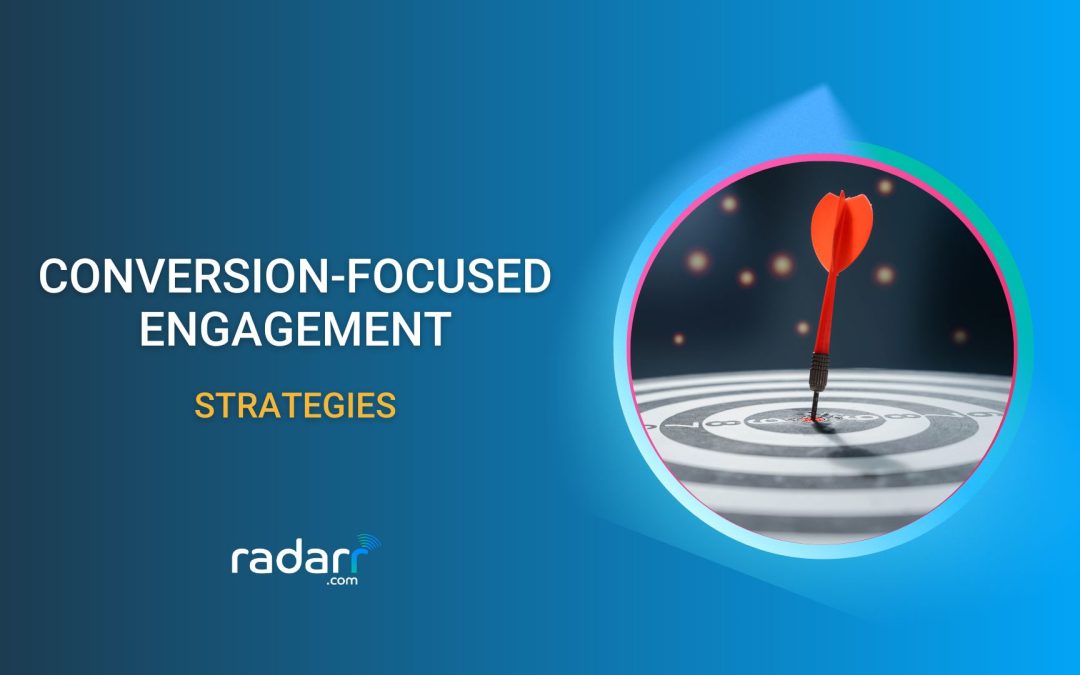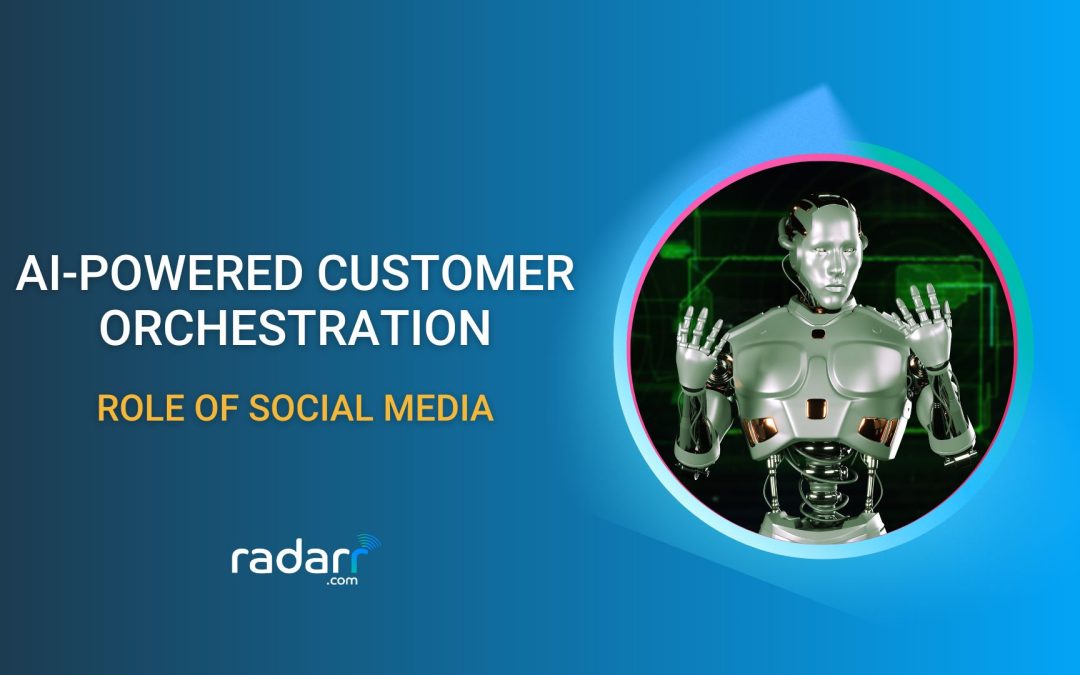In the dynamic landscape of the digital age, the symbiotic relationship between artificial intelligence (AI) and online reputation management has become pivotal.
AI empowers brands to unearth uncharted insights from diverse data channels, transforming the way they manage their online image. In this blog post, we delve into the transformative role of AI and how companies can use it for shaping online reputation management strategies.
How can companies use AI for online reputation management?
Companies can leverage AI in online reputation management in several ways:
1. Efficient monitoring with AI
AI-powered tools can sift through vast amounts of data spread across various online platforms, ranging from social media channels to review websites and news articles. This comprehensive surveillance allows businesses to stay abreast of ongoing conversations about their brand in real-time, acting as an early warning system for potential reputational challenges.
Using AI in online reputation management can promptly identify negative feedback or emerging crises. This proactive approach empowers businesses to respond swiftly and effectively, utilizing AI tools to mitigate the impact of unfavorable content and, in turn, enhance their overall online reputation.
2. Competitor analysis with AI
AI in online reputation management extends beyond a company’s digital narrative to include a keen focus on competitor analysis.
AI-powered tools excel at tracking and evaluating the online reputation of rival companies, furnishing businesses with valuable insights into the strengths and weaknesses of their competitors. This analytical prowess allows companies to benchmark their performance against industry rivals and formulate strategies to bolster their reputation.
AI in online reputation management also facilitates the identification of gaps in competitors’ online presence, offering a strategic advantage. For instance, if a competitor is found to be inactive on a specific social media platform, AI-driven insights enable businesses to seize this opportunity and strategically leverage that platform to augment their online presence and, consequently, their reputation.
3. Trend analysis with AI
AI in online reputation management allows businesses to conduct comprehensive trend analysis by scrutinizing vast amounts of online conversations.
This analysis allows companies to identify emerging trends and topics through which businesses can make informed adjustments to their online reputation management strategy, aligning their messaging and overall approach with prevailing trends.
4. Improved customer experience
AI-powered chatbots, for instance, revolutionize customer service by providing instantaneous and round-the-clock support. This results in significantly reduced response times, fostering enhanced customer satisfaction.
Moreover, AI enables businesses to delve into customer data and preferences with a level of depth that was previously unattainable. This in-depth understanding facilitates the customization of services and products to cater to the unique requirements of each customer. The ability to offer personalized experiences not only enhances customer satisfaction but also fosters customer loyalty.
5. Crisis management
AI in online reputation management excels at providing businesses with real-time alerts and actionable recommendations when a potential reputation crisis is detected. AI systems analyze data from past crises to offer invaluable insights into the most effective strategies to address the unfolding situation and minimize potential damage to a company’s reputation.
This online management technique not only navigates reputation-threatening situations more effectively but also learns from historical data to continuously refine and improve their crisis response strategies. This adaptive and data-driven approach is instrumental in preserving and enhancing a company’s online reputation during challenging times.
6. Sentiment analysis
Sentiment analysis enables businesses to gauge the sentiment expressed in online content, such as social media posts, reviews, and articles, regarding their brand. AI algorithms can discern whether the sentiment is positive, negative, or neutral, providing a comprehensive understanding of public opinion.
For instance, if a sudden surge in negative sentiment is detected, businesses can promptly investigate the root cause and implement strategies to rectify the situation.
Sentiment analysis empowers companies to push positive sentiment to strengthen their brand image. This nuanced understanding of public sentiment, facilitated by AI, allows businesses to stay ahead of the curve in shaping a positive online narrative.
Recommended read: Ultimate Guide to Brand Perception
7. Chatbots: Personalized engagement and reputation enhancement
Chatbots, powered by AI, have become invaluable tools as these intelligent virtual assistants enable businesses to provide instantaneous and tailored responses to customer inquiries, enhancing the overall customer experience.
When deployed strategically, chatbots can actively contribute to reputation enhancement by addressing customer concerns promptly and efficiently. AI-driven chatbots can analyze customer queries and sentiment, allowing companies to gauge public opinion in real time.
The continuous learning capabilities of AI enable chatbots to adapt and evolve, ensuring that they become more adept at handling various scenarios over time. This personalized engagement not only contributes to positive customer interactions but also plays a vital role in shaping and maintaining a favorable online reputation.
8. Predictive analytics: Anticipating reputation challenges
Predictive analytics enable companies to anticipate and address potential reputation challenges before they escalate.
AI in online reputation management identifies patterns and forecasts potential issues that may impact a company’s reputation. This foresight allows businesses to proactively implement strategies to mitigate risks and prevent the emergence of negative sentiment.
For example, predictive analytics can identify trends that might lead to negative publicity or public dissatisfaction, enabling companies to adjust their strategies or communications preemptively.
9. Automated Content Creation and Optimization
Using AI in online reputation management for automated content creation and optimization is a game-changer. AI-powered tools efficiently generate content that aligns with a company’s brand and resonates with its target audience.
With predictive, sentimental, and trends analysis, AI can identify key themes and sentiments to inform the content creation process. Further, these tools optimize content by identifying the most effective keywords, tones, and styles for positive engagement.
The automation of content creation not only increases efficiency but also ensures consistency in messaging across various platforms.
Recommended read: Online Reputation Management Examples and What You Can Learn From Them
Conclusion
There are several ways in which AI is transforming a brand’s ability to monitor their online presence and build a positive reputation. The easy route is to choose one of the best online reputation management tools for your brand.
This is where Radarr comes in!
Radarr as the best online reputation management platform serves as a valuable tool, enabling real-time monitoring of online conversations surrounding your brand and offerings. With Radarr, timely responses and proactive reputation management become achievable, fostering a positive online presence.
FAQs
What are some online reputation management techniques?
Use advanced AI in online reputation management by employing techniques like sentiment analysis, social media monitoring, and content optimization. Leverage automated tools to track online mentions and swiftly address negative feedback, ensuring a positive brand perception.
What is the main objective of online reputation management?
The primary objective of AI in online reputation management is to strategically influence and control a brand’s image by mitigating negative content, amplifying positive narratives, and using technology for swift, data-driven responses to maintain a favorable online perception.
What are the benefits of using AI in online reputation management?
Leveraging AI in online reputation management yields benefits like real-time monitoring, rapid response to emerging issues, sentiment analysis for informed decision-making, and predictive modeling to anticipate potential challenges, resulting in a resilient and positive brand image.












